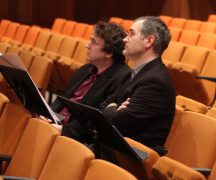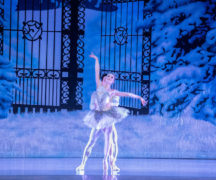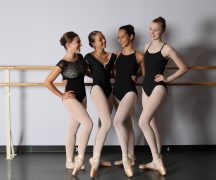By DAVID DUPONT
BG Independent News
The Toledo Symphony Orchestra programs some masterworks it knows people will come to the Peristyle to hear. Other works, though less known, will have those listeners talking after the applause fades.
Maestro Alain Trudel, the orchestra’s music director, believes firmly in that approach, which he credits Zak Vassar, the executive director of the Toledo Alliance for the Performing Arts, with articulating.
The epitome may have been in April, when in a program inspired by the recent total solar eclipse, the orchestra performed the beloved tone poem, “The Planets” by Gustav Holst, on the second half of a concert.
The first half though was devoted to nine short pieces, each about a planet, written by regional composers.
“This new discovery can change you,” Trudel said. He sat down recently with BG Independent to discuss the forthcoming season.
[See official announcement including all TSO and Toledo Ballet events.]
The conductor was focused on the Masterworks series, though, he also wanted to talk about what was scheduled for the Toledo Jazz Orchestra, which he also directs. But before then he reflected on the current season and his approach to conducting.
That “Planets” concert was a showcase for the skills of the symphony musicians. The nine pieces composed by members of the collective ADJ•ective New Music represented nine world premieres. New music is always a challenge, he said, but this called on the musicians to bring to life nine different visions. “That shift in thinking is hard,” Trudel said. “That was so demanding of the orchestra.”
Trudel said that when he conducts Camille Saint-Saens’ Third Symphony, “The Organ Symphony,” he has modest expectations. But the Toledo Symphony “knocked it out of the park” when they performed it this season with organist Paul Jacobs. “We do good work. We work hard,” he said.
“They are all very patient with me, the symphony and jazz orchestra, because sometimes I get finicky about little things. I try to be nice to people and respectful.”
That was not always the case with conductors.
“Growing up I had really autocratic ones,” Trudel recalled. “I don’t believe you can make great music if you’re a tyrant. You know it’s like in sports, people play not to lose,” Musicians can “play not to mess up,” he said. “But I don’t care if they mess up. You can achieve professional standards regularly by not wanting to mess up, but you rarely or never achieve greatness.”
Taking risks is a necessity. That may be playing a passage so softly it’s barely audible. Or it could be committing to a loud, long slur. “For me the only mistake you can make is not to try to make something memorable or magical. That’s a big mistake, more than missing a note.”
A baseball player is considered a success if they get hit 30% of the time. A basketball player is considered a success if he sinks 50% of their shots. But if a musician makes only 95% of their notes they are in trouble. “That’s how hard it is to be in an orchestra,” Trudel said. “No conductor should make it harder than it is. I need to have their backs in exchange I want them to take risks so we can make music together.”
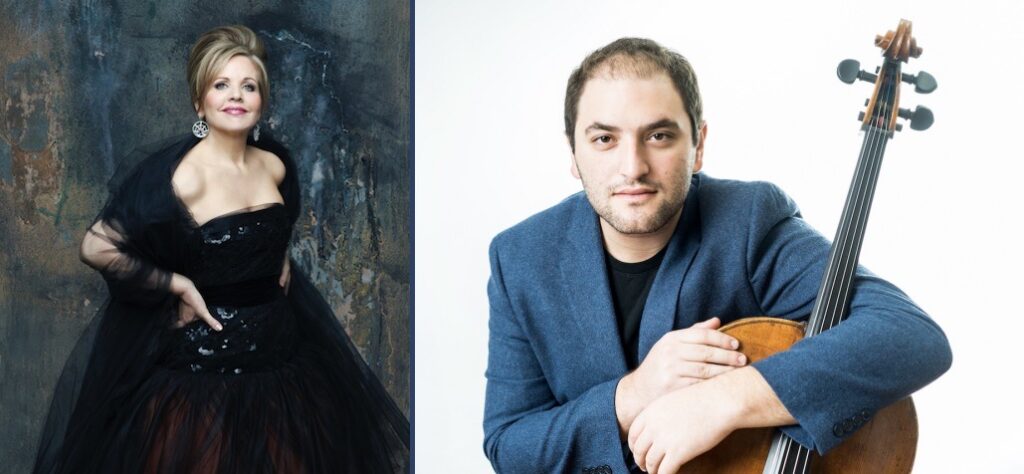
This coming season they have a lot of music to make.
This is the season when the orchestra is finally putting the disruptions of COVID behind it. All the guest artists whose appearances were canceled have been featured.
And the orchestra has filled the dozen vacancies after having to pause auditions. “We’re always sad to see people go but always happy to welcome new ones,” Trudel said.
Now in his eighth year, Trudel remains devoted to the TSO. Typically, an orchestra’s music director spends 10 weeks in town. Trudel spends about 20. He checks in even during the summer. Listeners may even catch him at Lucille’s playing jazz.
“If you’re going to be the papa of the orchestra, you can’t be an absentee father,” he said.
Run-out concerts were another casualty of the pandemic. “Now we’re starting again,” he said.
When the orchestra traveled to perform in Greenville, Trudel rode the bus with the orchestra so he could “hang out talk with my colleagues and have a good time.”
Trudel plans to conduct three or four of the five shows on the Toledo Jazz Orchestra’s season. That ensemble is now the main outlet for his trombone playing.
His conducting duties do get in the way of his playing, but he works to keep up.
He regularly plays duets with the TSO’s principal trombonist Garth Simmons. Bach’s two-part inventions are always on the stand, but also works written for students where they get to enjoy the simple pleasure of a well-tuned third.
In addition to Toledo, Trudel also conducts l’Orchestre Symphonique de Trois-Rivières. “I try to keep my presence in my home province,” the Montreal-native said.
That orchestra has released recordings of its performances, something Trudel aspires to do with Toledo. All its performances have been recorded, and he feels some of those may be worthy of release. He pointed to the orchestra’s performance of Witold Lutoslawski’s Concerto for Orchestra this past season as an example.
And certainly, the forthcoming 2024-2025 Masterworks will feature such highlights.
The season opens Sept. 27 and 28 with a performance of Beethoven’s Ninth. The orchestra had been scheduled to open its 2020-2021 season with the Ninth, but that was a victim of the pandemic.
[Click for details on times and tickets for all series in the 2024-2025 season]
Opening that concert will be “Elysium for Orchestra” by Trudel’s fellow Montreal native Samy Moussa. The piece, the conductor notes, expresses similar thematic elements as the choral section of Beethoven’s masterpiece.
Next on up Oct. 11 the orchestra will welcome back world-renowned soprano Renée Fleming. She will perform contemporary composer Kevin Puts’ “The Brightness of Light,” a multi-media piece based on the love letters between painter Georgia O’Keefe and photographer Alfred Stieglitz. Baritone Rod Gilfry will join Fleming.
This will be paired with a classic celebration of love, Tchaikovsky’s Fantasy Overture “Romeo and Juliet.” The program opens with Indian-American composer Reena Esmail’s “Black Iris.”
The orchestra will present an all-Austrian program featuring Paul Huang performing W.A. Mozart’s Violin Concerto No. 4 with Franz Schubert’s Overture to “Rosamunda” and Anton Bruckner’s Symphony No. 4.
This is Trudel’s first venture into Bruckner. He noted his predecessor Stefan Sanderling had performed a complete cycle of Bruckner’s symphonies during his tenure. Now it’s Trudel’s turn.
On Nov. 22 and 23, the TSO will commemorate the 100th anniversary of the premiere of Gershwin’s “Rhapsody in Blue” featuring pianist Terrence Wilson. Also, on the program will be Aaron Copland ‘s Third Symphony, which includes the Fanfare for the Common Man.
Trudel said that this is a piece that is always on musicians’ wish list. But it requires the right setting, he said.
This all-American program, which opens with Jessie Montgomery’s “Banner,” provides the perfect context.
The orchestra opens 2025 by hosting the Spanish Brass on Jan. 18. The quintet, Trudel said, “will bring some sunshine from Spain” in the middle of a Northwest Ohio January.
The ensemble plays music from the folkloric to the classical, most of it written for them. That includes Salvador Brotons’ Concerto for Brass Quintet and Orchestra and Albert Guinovart’s “Around the World in 80 Days.” The program will also feature music by Nicolai Rimsky-Korsakov, Georges Bizet, and Astor Piazzolla.
Pianist Stewart Goodyear has become a Toledo favorite. He made his Toledo debut in 2007 playing concerti by Dmitri Shostakovich. He’s performed Mozart and Beethoven here as well, and in his last Toledo appearance he performed his own concerto.
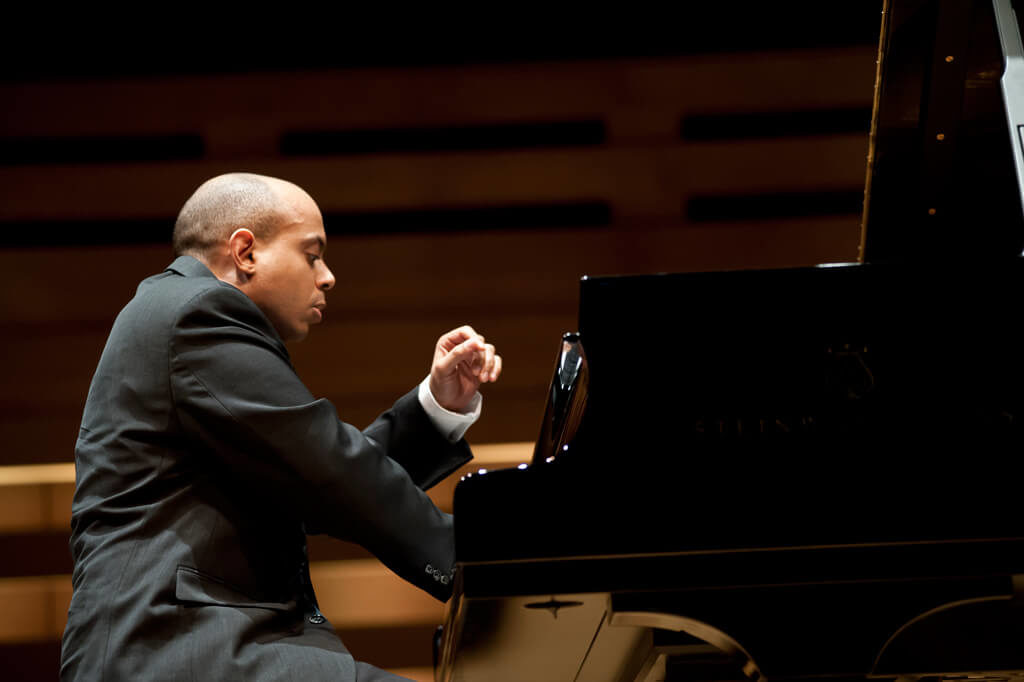
Trudel wanted to feature him in a new way. So, the Feb. 7 and 8 performance “Stewart Goodyear: Life, Life. Life” will spotlight his talents both as a virtuosic pianist and as a composer, but on different works.
Trudel said the program is formed around the theme of virtuosic pianists who were also composers. Goodyear will be the featured soloist on Sergei Rachmaninoff’s “Rhapsody on a Theme of Paganini” and the orchestra will perform the American premiere of the guest’s “Life, Life, Life.” The piece is a tribute to his mother.
Also, on the program will be Beethoven’s “Coriolan Overture” and Franz Liszt’s “Les Préludes.” Aside from the Rachmaninoff concerto, none of the pieces feature piano.
“We tried to mix it up a little bit,” he said, adding “that’s one that could be on an album.”
The symphony welcomes back another pianist Elizabeth Pion on March 8. Previously she performed Mozart with the orchestra. This time she will perform another American premiere of Latvian composer Lūcija Garūta’s Piano Concerto in F-Sharp Minor from 1955.
This will be paired with Trudel’s first performance with the TSO of a work by Jean Sibelius. His approach is to start with the composer’s most popular symphony, in this case the Second.
The March 21 program will pair another beloved symphony, Tchaikovsky’s Fourth, with two contemporary works. The concert will open with Margaret Bonds’ “Montgomery Variations,” a reflection on the Civil Rights movement. The symphony will feature Garth Simmons on the trombone concerto “Troubled Water,” composer Carlos Simon’s reflection on the Underground Railroad.
The next program, April 4 and 5, is a “core program,” Trudel said. Sometimes the orchestra just focuses on the core literature in this case, symphonies by Mozart, the 40th, and Beethoven, the Seventh.
That sets up a May 10 celebration of American composer and conductor Leonard Bernstein. The performance features his work for stage, screen, and concert hall. It’s not, though, what the program listeners would expect, Trudel said.
Yes, it opens with the exhilarating “Candide Overture.” Then the orchestra will perform music from Bernstein’s score from “On the Waterfront,” which is not played frequently. His orchestral work will be represented by his Symphony No. 2 “The Age of Anxiety” with pianist Marc-Andre Hamelin as soloist.
“It’s a huge undertaking,” Trudel said.
Trudel will continue his sequence of performances of Mahler symphonies on May 31, 2025, with a performance of the composer’s Symphony No. 1, “The Titan.” (That’s exactly a year after this week’s performance of Mahler’s Ninth Symphony on Friday, May 31 and Saturday, June 1.)
Trudel said he wanted to highlight the strain of Jewish music in Mahler’s music. So, the program will feature the fifth Toledo appearance by cellist Julian Schwarz as soloist on Ernest Bloch’s “Schelemo: Rhapsodie Hébraïque for Violoncello and Orchestra.”
“We’ll finish the season with a party,” Trudel said. The finale program on June 6, 2025, will feature a number of soloists from the orchestra. The shorter works all have a light, celebratory mood. On the program will be: Mikhail Glinka’s” Overture to Ruslan and Ludmilla,” Felix Mendelssohn’s “Konzertstüuck for Two Clarinets,” the finale of Andres Martin’s D-flat Concerto; Herbert L. Clarke’s “Carnival of Venice,” Morton Gould’s “American Symphonette No. 2,” Maurice Ravel’s “Pavane for a Dead Princess,” and Alexander Borodin’s “Polovtsian Dances from Prince Igor.”
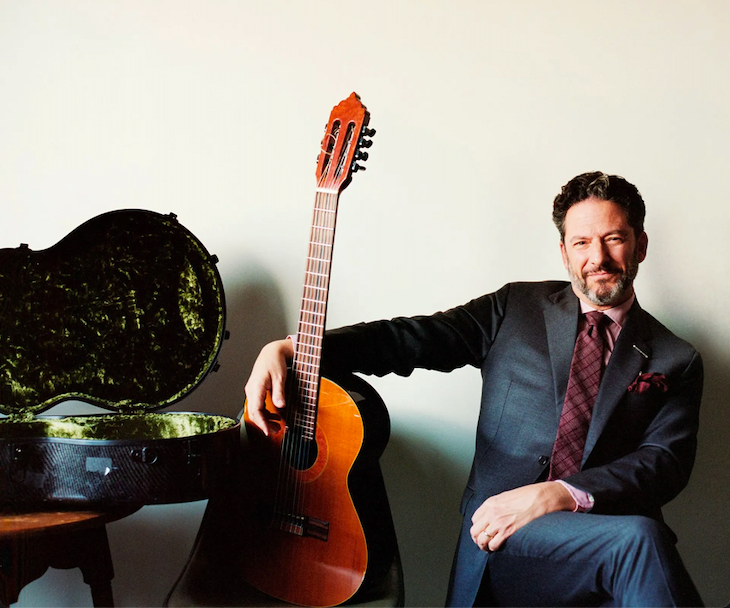
Trudel was just as excited to discuss the Toledo Jazz Orchestra’s season, which opens Nov. 2, with a tribute to Stan Kenton. Since taking over as music director two seasons ago, Trudel has devoted programs to great bandleaders. The TJO has celebrated Duke Ellington and Buddy Rich. Now they turn, return actually, to Kenton. The TJO had previously done annual Kenton shows.
The big band will celebrate another “Very Jazzy Christmas” with all the charts written by Andrew Bishop, the ensemble’s tenor saxophonist who will be guest conductor. Toledo native, now New York-based vocalist April Varner, will return after her appearance last December.
On Feb. 1, the TJO will present another program devoted to The American Song. The third American Song show will play tribute to “The Artistry of Jon Hendricks,” the jazz great who grew up in Toledo, where he returned in his elder years to teach at the University of Toledo. The concert will feature Kim Buehler, who studied and collaborated with Hendricks in Toledo.
On March 15, The jazz orchestra will revive a jazz orchestral classic, the Miles Davis-Gil Evans reimagining of “Porgy and Bess.” Trudel said rather than fly in a guest soloist, the orchestra will feature one of their own, Ben Wolkins, as the trumpet soloist.
The season ends on April 12, featuring guest soloist John Pizzarelli, on guitar and vocals, in another celebration of the Great American Songbook.
“It’s a really great season,” Trudel said.


